Water Softener Installation Cost: Complete Breakdown
- Water Softener Installation Cost: Complete Breakdown
- Introduction: What a water softener system does — and why cost matters
- Types of water softener system and their price categories
- Salt-based ion exchange systems
- Salt-free conditioners (template-assisted crystallization and others)
- Dual-tank and commercial/industrial systems
- Purchase price: equipment cost ranges for water softener system
- Installation costs: what you’ll pay to get a water softener system working
- Operating and maintenance costs for a water softener system
- Lifetime cost example: 10-year comparison by system type
- Factors that most affect your water softener system cost
- How to choose the right water softener system for your budget and needs
- Common cost-saving strategies without sacrificing performance
- When to choose a commercial/industrial water softener system
- Why using an experienced supplier/installer matters for total cost
- How Aqualitek helps control water softener system costs
- Aqualitek competitive advantages and product capabilities
- Checklist: questions to ask your installer or vendor
- FAQ — Common questions about water softener system costs
- Next steps — getting accurate local pricing and free consultation
- Contact our team / View products
- References
Water Softener Installation Cost: Complete Breakdown
Introduction: What a water softener system does — and why cost matters
A water softener system protects plumbing, appliances, and fabric by reducing hard water minerals (mainly calcium and magnesium). When evaluating whether to install one, homeowners and facility managers need a clear picture of upfront purchase price, installation charges, ongoing operating expenses, and long-term lifecycle costs. This article gives a complete, practical breakdown to help you budget, compare options, and choose the right system for your needs.
Types of water softener system and their price categories
There are several common softening technologies. Each has different purchase, installation, and operating costs. Below are the most frequently used types with straightforward descriptions to help you compare cost vs. benefit.
Salt-based ion exchange systems
Salt-based ion exchange is the most widely used technology for whole-house softening. These systems exchange sodium (or potassium) ions for hardness minerals using a resin bed. They are effective for high hardness levels and typically require salt and periodic backwash/regeneration.
Salt-free conditioners (template-assisted crystallization and others)
Salt-free systems do not remove hardness ions but change their behavior so they are less likely to scale. They generally have lower maintenance and no salt usage, but their effectiveness varies by water chemistry and is less reliable where very hard water is present.
Dual-tank and commercial/industrial systems
For continuous operation without downtime (important in commercial/industrial settings), dual-tank or engineered ion exchange systems are used. These are more expensive up-front but provide reliable high-flow, high-volume treatment and can be customized to meet process requirements.
Purchase price: equipment cost ranges for water softener system
Equipment costs vary by type, capacity, and features (digital controllers, metered regeneration, high-efficiency designs). Typical ranges are:
- Residential salt-based ion exchange systems: $700–$3,000 for the unit
- Salt-free conditioners: $600–$2,500 for the unit
- Commercial/industrial ion exchange or duplex systems: $3,000–$25,000+ depending on capacity and customization
These ranges reflect market averages; exact pricing depends on capacity (household GPM and grain removal requirement), brand, and optional features.
Installation costs: what you’ll pay to get a water softener system working
Installation is often 20%–50% of total installed cost for residential systems and sometimes more if plumbing alterations or bypasses are needed. Typical installation components include:
- Plumbing connections and labor
- Drain and overflow setup
- Brine line and electrical connection (if controller requires power)
- Bypass valve and mounting hardware
Typical installation cost ranges:
- Basic residential installs (simple retrofit, accessible location): $300–$800
- Complex residential installs (new hookups, walls, or remote location): $800–$1,500+
- Commercial installs: $1,500–$10,000+ depending on complexity and labor
Operating and maintenance costs for a water softener system
Ongoing costs include salt (for salt-based systems), water used during regeneration, electricity to run controls/valves (minimal), periodic resin replacement (rare), and annual service/inspection. Typical annual operating costs:
- Salt-based systems — salt costs: $75–$250 per year depending on household size and hardness
- Water for regeneration — depends on system efficiency; can be 20–50 gallons per regen for modern efficient units
- Electricity — typically <$30/year for controller and motorized valves
- Resin replacement — $400–$900 every 10–15 years (not annual)
- Annual service/inspection — $80–$200 if you hire a pro
Lifetime cost example: 10-year comparison by system type
To evaluate total cost of ownership, consider purchase + installation + 10 years of operation. Numbers below are illustrative averages and will vary by location and water conditions.
| System type | Typical purchase | Installation | Estimated 10-year operating | 10-year total (typical) |
|---|---|---|---|---|
| Salt-based ion exchange | $1,200 | $600 | $1,200 (salt, water, service) | $3,000 |
| Salt-free conditioner | $1,400 | $600 | $400 (minimal maintenance) | $2,400 |
| Commercial duplex ion exchange | $12,000 | $4,000 | $3,000 (salt, service) | $19,000 |
Source note: figures are conservative averages compiled from industry pricing guides and manufacturers' typical ranges (see references).
Factors that most affect your water softener system cost
When estimating your actual cost, consider these variables:
- Water hardness (measured in grains per gallon, GPG). Higher hardness requires larger capacity systems.
- Household water use and peak flow requirements—higher flow needs larger or multiple tanks.
- Plumbing access and retrofit complexity (will a plumber need to open walls or run new drain lines?).
- Local labor rates and permit requirements.
- Desired features: metered regeneration, high-efficiency resin, remote monitoring, and warranties.
How to choose the right water softener system for your budget and needs
Follow a simple decision path to align cost and performance:
- Test your water hardness and any other contaminants (iron, pH, TDS). Accurate data prevents overspending.
- Estimate daily water use and required capacity (grains removed per day). Use the hardness x gallons per day to size resin volume.
- Choose a technology that addresses your goals (scale prevention vs. full ion removal).
- Compare efficiency ratings and salt/water usage — high-efficiency units can lower life-cycle costs.
- Get itemized quotes from reputable installers including parts, labor, and warranty details.
Common cost-saving strategies without sacrificing performance
Consider these approaches to keep costs reasonable:
- Buy a correctly sized system — oversizing increases purchase and operating costs unnecessarily.
- Look for high-efficiency softeners with demand-initiated regeneration (DIG) to reduce salt/water use.
- Bundle with pretreatment if iron or sediment will reduce resin life — extending resin life saves money.
- Maintain the system routinely (keep brine tanks clean and check salt levels) to avoid premature failures.
- Get multiple quotes and verify installer credentials and warranty coverage.
When to choose a commercial/industrial water softener system
Commercial and industrial facilities should evaluate costs differently. The cost of downtime, scale-related maintenance on boilers, chillers, or process equipment often justifies higher-capacity systems and redundancy. In these cases, vendors provide engineered solutions (e.g., duplex ion exchange, automated brine recovery) and life-cycle cost analysis is more appropriate than simple purchase price comparisons.
Why using an experienced supplier/installer matters for total cost
Poorly sized or incorrectly installed systems lead to higher operational costs and shorter component life. Experienced suppliers provide:
- Accurate sizing based on measured hardness and flow requirements
- Appropriate pretreatment recommendations (e.g., sediment filters, iron removal)
- Reliable installation reducing leaks and ensuring correct regeneration programming
- Warranty support and parts availability
How Aqualitek helps control water softener system costs
Aqualitek Water Treatment Technologies Co., Ltd. (AQT), headquartered in Guangzhou, China, is a leading manufacturer and supplier of advanced water treatment systems and high-quality component parts. We specialize in delivering customized solutions for residential, commercial, and industrial applications, meeting diverse water purification needs worldwide. With a strong foundation in engineering expertise, cutting-edge technology, and manufacturing excellence, we are committed to delivering innovative, reliable, and cost-effective water treatment solutions to our global partners.
Aqualitek competitive advantages and product capabilities
Aqualitek’s approach reduces total installed cost while maximizing long-term value. Key advantages include:
- Integrated product lines that simplify selection (membrane systems, water filtering systems, ion exchange systems, customized water purification systems)
- Engineering-led customization to right-size systems and avoid costly overspecification
- Access to high-quality components produced in-house, improving availability and reducing replacement costs
- Technical support and commissioning services to ensure efficient installation and optimal operation
Core products and strengths:
- Membrane systems — precise filtration for desalination and polishing, ideal for commercial reuse and RO pretreatment.
- Water filtering systems — sediment and carbon systems to protect softeners and downstream equipment.
- Ion exchange systems — salt-based and customized resin systems for both residential and industrial applications.
- Customized water purification systems — integrated solutions combining pretreatment, softening, and disinfection tailored to site-specific needs.
By working with Aqualitek, buyers benefit from engineering-driven proposals that focus on life-cycle cost, not just initial price. This reduces the risk of hidden operating expenses and extends asset life.
Checklist: questions to ask your installer or vendor
Before you sign a quote, ask these practical questions to reveal true costs:
- What is the system’s daily grain removal capacity, and how was it sized for my household/facility?
- What are the expected annual salt and water regeneration volumes?
- What warranty covers resin, tanks, and control valves, and what are the terms for service calls?
- Are permits required, and who handles them?
- Can you provide references or case studies for similar installations?
FAQ — Common questions about water softener system costs
Q: How much should I expect to pay total for a new residential water softener system?
A: Most homeowners pay between $1,500 and $4,000 installed for a conventional salt-based whole-house softener including installation and first-year operating costs. Lower-cost salt-free options may reduce annual operating costs but may not perform equally in very hard water conditions (see sources below).
Q: Are rentals cheaper than buying?
A: Rentals can offer a lower monthly outlay ($20–$60/month) and include maintenance, but over multi-year ownership they often cost more than purchasing due to cumulative rental fees.
Q: Do water softeners increase sodium in drinking water?
A: Salt-based softeners add a small amount of sodium. People on strict low-sodium diets should consult a physician or consider potassium chloride or a reverse osmosis system for drinking water.
Q: How long does a water softener system last?
A: A well-maintained resin tank commonly lasts 10–15 years; tanks and control valves may last longer with proper care. Commercial systems are designed per duty cycle and can have different lifespans depending on maintenance.
Next steps — getting accurate local pricing and free consultation
To get a precise quote, start with a water test (hardness, iron, TDS) and a brief survey of household flow requirements. Request an itemized proposal detailing equipment, installation, operating cost estimates, and warranty terms. If you’d like, Aqualitek can provide technical sizing support and tailored proposals based on site data.
Contact our team / View products
If you’re ready to reduce scale and improve appliance life, contact Aqualitek’s sales engineers for a free consultation and tailored quote. Visit our product catalog or reach customer service for help selecting the right water softener system for your needs.
References
- HomeAdvisor — typical home water softener costs and installation ranges
- Angi (formerly Angie's List) — cost breakdowns for residential water softener installation and maintenance
- Water Quality Association (WQA) — information on softening technologies and best practices
- Manufacturer data and industry price surveys — used for average equipment and operating cost estimates
How to Test Well Water: Parameters, Methods, and Frequency
Common Contaminants and How Systems Remove Them

Multi-cartridge Filter Housing: Stainless Steel Options for Purity
Top 10 reverse osmosis system Manufacturers and Supplier Brands
Ion Exchange Water Treatment Systems
Are mixed bed systems better than two-bed systems?
Mixed bed polishers are used for final polishing after RO or two-bed deionization to achieve ultra-pure water.
Water Filters
What is the expected lifespan of a water filter?
Cartridge filters generally last 1–3 months. Media filters require periodic backwashing and media replacement every 1–2 years, depending on usage.
Membrane Water Treatment Systems
Can your membrane systems treat seawater?
Yes. Our seawater RO systems are designed to handle high salinity with corrosion-resistant materials and energy recovery devices.
Solutions
How often should I replace filters and membranes?
Filter and membrane lifespan depends on water quality, usage, and system type. General guidelines:
1. Sediment & Carbon Filters: Replace every 6–12 months.
2. RO Membranes: Replace every 2–3 years, depending on water conditions.
3. UF/NF Membranes: Replace every 1–2 years.
Regular maintenance ensures optimal performance and water quality.
Blog
Can I use a water softener with a septic system?
Yes. Studies show no negative impact, especially when using metered regeneration systems.

500 LPH Reverse Osmosis (RO) Water Purification Machine TWV - 412
Our 500 LPH Reverse Osmosis (RO) System is engineered to provide high-quality purified water for commercial applications. Designed with advanced RO technology, durable components, and a user-friendly interface, this system ensures consistent performance, low maintenance, and long-term reliability.
With its compact design and robust skid-mounted frame, it’s an excellent choice for businesses that demand efficiency and quality in water purification.

30TPH Industrial Reverse Osmosis (RO) System
30TPH Industrial Reverse Osmosis (RO) System designed for industrial and municipal water treatment. High salt rejection, energy-efficient design, PLC control, and customizable configuration.

500LPH Panel Mounted Reverse Osmosis Water Purification System
AQUALITEK's 500LPH Panel Mounted Reverse Osmosis Water Purification System delivers reliable 500 LPH RO water production. This compact industrial reverse osmosis unit is ideal for small scale industrial RO needs, ensuring efficient and high-quality purified water in a space-saving design.

Electrodeionization Systems to Get UltraPure Water
Electrodeionization (EDI) system is an advanced water purification technology that combines ion exchange and electrochemical processes to produce ultra-pure water. Unlike traditional deionization methods, which rely on chemical regeneration, EDI utilizes electric fields to drive the movement of ions through ion-exchange membranes, effectively removing dissolved salts and other ionic contaminants.
This process is continuous and does not require the use of chemicals for regeneration, making it an environmentally friendly and cost-effective solution for producing high-quality deionized water. EDI systems are widely used in applications requiring ultrapure water, such as in the pharmaceutical, semiconductor, power generation, and biotechnology industries, as well as for laboratory use.
By offering high-purity water without the need for chemical regeneration, EDI systems provide a sustainable, efficient, and reliable alternative to traditional deionization methods, making them an ideal choice for industries where water quality and process control are critical.
Request More Information
Contact us today for product catalogs, customization options, and a free quotation designed for your business needs.
Rest assured that your privacy is important to us, and all information provided will be handled with the utmost confidentiality.
© 2026 AQUALITEK. All rights reserved.

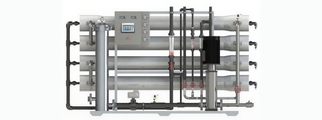
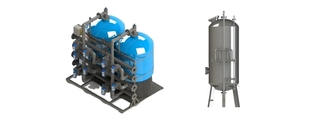
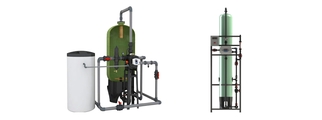
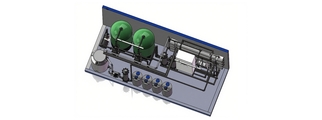
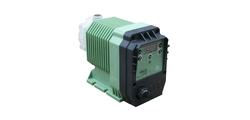
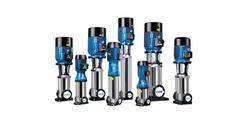
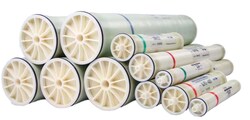
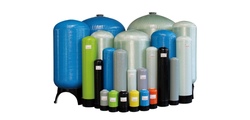
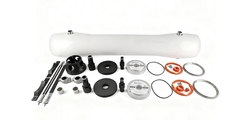
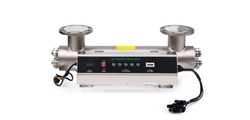
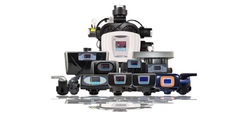
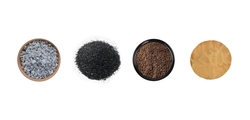
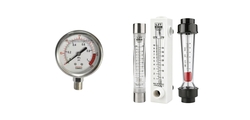
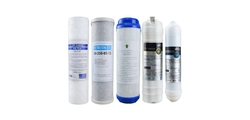
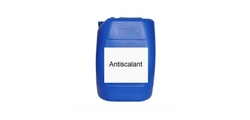
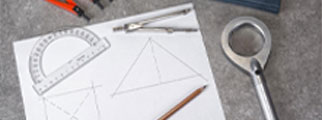



AQUALITEK- Aimee Hoo
AQUALITEK - Aimee Hoo